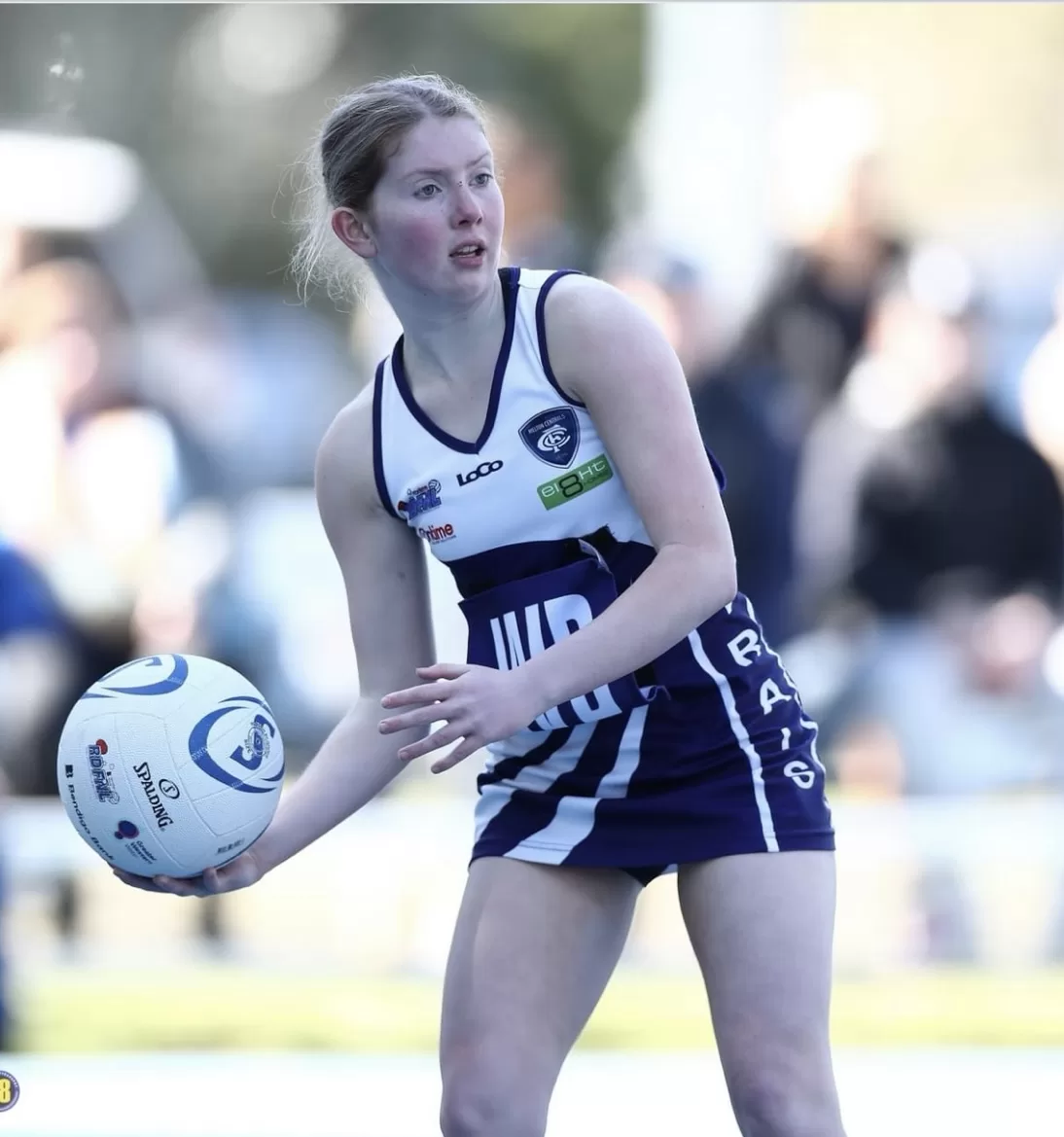- In short: A new study by the Murdoch Children’s Research Institute has found a blood protein that could help detect delayed concussion recovery in children.
- About one in 16 children will have a concussion by the time they reach 10 years of age but experts say that figure could be higher.
- What’s next? Further trials and additional funding is needed.
Karen Payne says she’ll never forget the sight of her daughter Mackenzie lying unconscious on the netball court.
“It was terrifying,” she said.
A stray blow from another player caused her to fall and hit her head, leaving 16-year-old Mackenzie out cold for a minute
“When I woke up, I couldn’t see out of my eye and I was lying in a pool of my own blood. I felt dizzy, confused and everything became a blur,” Mackenzie said.
But while she was only out for a minute, the following months of her life were turned upside down.
“I felt very confused, very foggy, I couldn’t really understand much, I couldn’t process information or retain [it],” she said.
She had suffered a concussion that would ultimately take months to recover from.
“It was really hard … I wanted to feel normal but I just couldn’t no matter how hard I tried,” she said.
“I couldn’t think properly, it was almost like there was nothing going on in my head before I spoke or did anything.
“All I wanted was to be back on the netball court. I didn’t understand at the time how much of a long-term impact concussion can have.”
Previously, it has been impossible to know which children would recover quickly from concussion and which would have a delayed recovery.
But Melbourne researchers now believe they’ve found a breakthrough that could let them predict it.
The blood protein that could predict the future
Melbourne researchers say they have discovered a blood protein that could help detect children with ongoing concussion symptoms weeks after an injury.
Researchers at the Murdoch Children’s Research Institute (MCRI) said levels of a protein called Alpha-1-antichymotrypsin (alpha-1-ACT) appeared significantly lower in children who had a delayed recovery from injury.
According to MCRI, around four million children experience a concussion each year.
“The stats say one in 16 kids would have had a concussion by the time they’re 10, so it’s relatively common,” professor Vicki Anderson said.
She said about 70 per cent of children will recover within two weeks but 30 per cent will have long-term symptoms, with half never seeking out medical care.
“We want to identify those [30 per cent] because our research shows that the earlier we start to support those kids with either education around concussion or our interventions, the better that they do,” she said.
The latest study used a finger prick to test a sample of blood from children who had experienced a concussion.
The results were then compared against children who had not suffered a concussion as well as children who had suffered other injuries that were not related to the brain.
“We’ve been able to link lower levels of this particular protein associated with slower recovery,” Professor Anderson said.
“Potentially in the future, if we can replicate those findings, it will tell us very early on when kids come into the ED or when they they go to their GP, they’ll be able to identify this particular protein and then make sure that young person has more intensive care intervention and support along the way to try and reduce that long term recovery.”
Ms Anderson said it would still be a few years before the tests are conducted outside of a research setting but it could make an immediate difference with treatment.
“It’s a very easy method. It could be done on the sidelines of sport, it could be done by the school nurse and so on,” she said.
Fellow researcher Ella Swaney said having a tool to detect a child recovering poorly would have a large impact on treating concussion.
“Every child recovers from a concussion very differently,” Ms Swaney said.
“The really important thing right now is identifying them and ensuring they receive the treatment that they need.”
Ms Swaney said the study is the first of its kind in the world, but more testing still needed to be done.
Expert says findings could be a game changer
Senior research fellow in neurotrauma at Curtain University and the Perron Institute, Sarah Hellewell, labelled the findings as “significant”.
“Brain injury researchers collectively around the world have been searching for a marker like this because there’s no way yet to tell what someone’s recovery will be like,” she said.
“This will give us a way to potentially say we really need to pay more attention to this child who needs further care and consideration and perhaps we can even point them towards more directed treatment and care to help them with their recovery.”
The study would need to be replicated in larger groups, and if the findings are consistent it could be applied in a public setting.
“Once we can see that we’re getting consistent findings across different studies and different study populations then we can start to implement this and say is this something we can do in a hospital,” Dr Hellewell said.
She said it was an exciting development and could improve the outcomes for people who suffer long term effects from concussions.
“Being able to use a marker like this will really be a game changer to be able to give people realistic expectations about their recovery and to get them early intervention as well,” Dr Hellewell said.
Ms Payne said the findings would give parents peace of mind so they can better support their children.
“It’s not going to change the fact that they’ve got concussion but at least parents will know whether this is something that will be a couple of weeks … or whether it will be something a little bit more long term,” she said.
